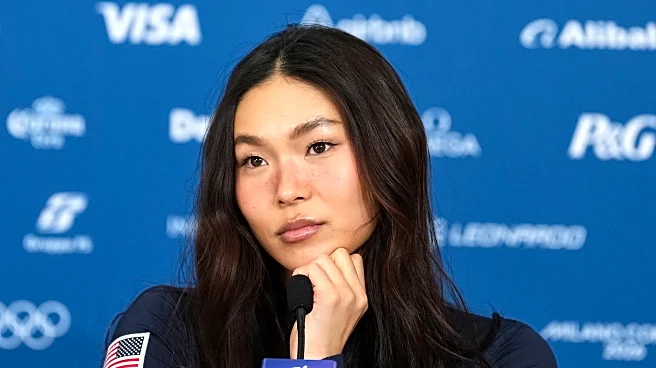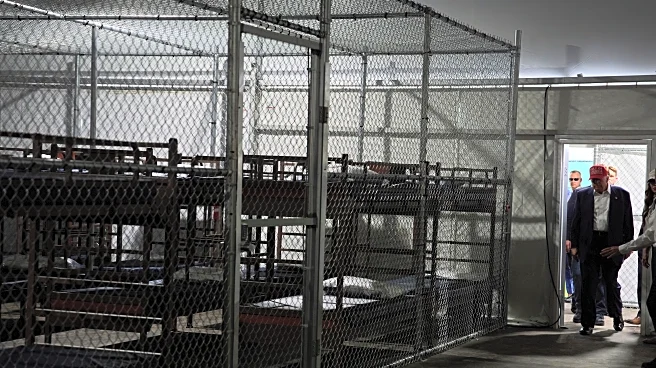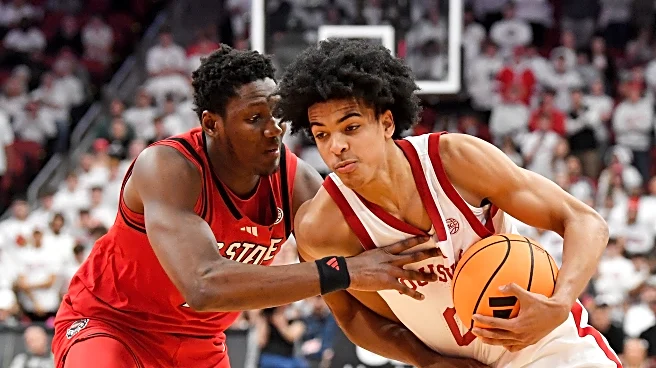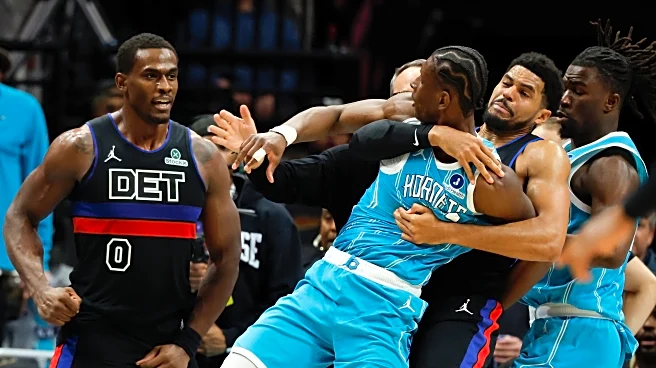What's Happening?
A recent analysis of baby naming trends in the United States reveals significant shifts over the past 20 years. According to data from the Social Security Administration, names that were popular in 2005 have seen a notable decline in their rankings. Names such as Tyler, Alexis, and Alyssa, which were once common, have fallen out of favor. Experts attribute this trend to generational changes, with millennial names like Marissa, Megan, and Brandon experiencing a drop due to oversaturation and association with older generations. The analysis also highlights a revival of 'old-school' names like Eleanor and Hazel, which have gained popularity as parents seek fresher options. Additionally, there is a growing trend towards unisex and gender-neutral names, reflecting broader societal shifts in views on gender identity.
Why It's Important?
The decline in popularity of certain baby names over the past two decades reflects broader cultural and generational shifts in the United States. As millennials become parents, they are moving away from names associated with their own generation, opting instead for names that feel more timeless or unique. This trend has implications for cultural identity and generational branding, as names often carry connotations and cultural significance. The rise in gender-neutral names also indicates a shift towards more inclusive and diverse perspectives on gender, which could influence future naming conventions and societal norms. These changes in naming trends may also impact industries related to baby products and services, as they adapt to the evolving preferences of new parents.
What's Next?
As naming trends continue to evolve, it is likely that the popularity of certain names will fluctuate based on cultural influences, media, and societal changes. The ongoing shift towards gender-neutral names may lead to further diversification in naming conventions, potentially influencing how names are perceived and used in various contexts. Additionally, the revival of 'old-school' names suggests a growing appreciation for historical and classic names, which may continue to gain traction. Businesses and marketers in the baby industry may need to adapt their strategies to align with these changing preferences, offering products and services that resonate with the values and identities of modern parents.










